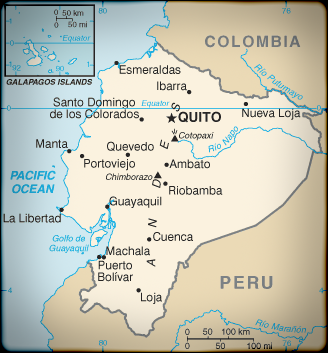Almost every natural disaster in the Third World is followed by calls for amnesty for illegal aliens from the afflicted country. Such amnesties are de facto permanent, despite their label: Temporary Protected Status.
TPS is what you might call green card-lite – it provides the illegal immigrants (and legal tourists, students, et al. whose visas are expiring) a work permit, Social Security number, driver’s license, and access to certain welfare benefits, but not an immediate path to citizenship. Obama’s lawless DACA and DAPA amnesties were modeled on TPS.
The TPS amnesty for 200,000 Salvadoran illegals after a 2001 earthquake has been routinely renewed. The TPS amnesty for 60,000 Hondurans and Nicaraguans following Hurricane Mitch in 1998 has also been routinely renewed. Liberians were the first to benefit from TPS after Congress enacted the law in 1990 (to rein in unilateral executive actions) – and they’re still here. The TPS amnesty because of Ebola in West Africa was just extended despite the fact that the Ebola outbreak is now over. No one has ever been made to leave the country because his TPS amnesty expired.

In other words, there’s nothing as permanent as a temporary refugee.
I asked on Twitter a week ago when the calls for granting TPS to Ecuadorian illegals might be expected, given the earthquake there earlier this month. As if on cue, Rep. Luis Gutierrez wrote the president on Monday asking for TPS, since Ecuadorians “cannot safely return to their country.”
The 7.8-magnitude earthquake was indeed severe; more than 600 people died and much property was destroyed. But the quake did not hit the capital of Quito (though some people there lost power), nor Guayaquil, the nation’s largest city. Anyone returning from the U.S. would be going through the airports in one of those cities, both of which are operating normally; dozens of international flights have been arriving and departing without incident, including Delta flight 673 from Atlanta, due later tonight in Quito.
Unlike some grants of TPS, which cover small numbers of people (50 people from South Sudan, for instance), Pew estimated that in 2012 there were 130,000 Ecuadorian illegal aliens in the United States, making Ecuador the 11th largest source country for illegals. So TPS would give a de facto permanent amnesty to a number equivalent to more than 10 percent of the total legal immigration flow for this year.
The sensible alternative would be simply to freeze deportations (and stop the clock on temporary visas) for a few months and see how things look then. We only deported 209 people to Ecuador in 2013 (the most recent numbers), so the choice is permanent amnesty for 100,000 illegals or briefly suspending the deportation of, at most, a few dozen people. Guess which one Obama is likely to pick.
Two last thoughts on TPS: Congress created the law in the first place to limit executive discretion in letting illegals stay. The endless renewals, which are lawful, prove it hasn’t worked. The law needs to be amended so that after the initial grant, any renewals would have to be approved by both houses of Congress.
And finally, if the Supreme Court rules against Obama, look for him to grant TPS amnesty to all illegals from Mexico and Central America, though probably not til after the election. He has the statutory authority and probably didn’t use it in this case for political reasons – he wanted to target politically sympathetic illegals, like those who came as kids or who have U.S.-born kids, and TPS can’t do that. But after November 8, he would no longer face any political constraints and might see the benefit of either amnestying as many as possible before Trump takes office or amnestying as many as possible so Hillary won’t have to pay the political price for doing it herself.
